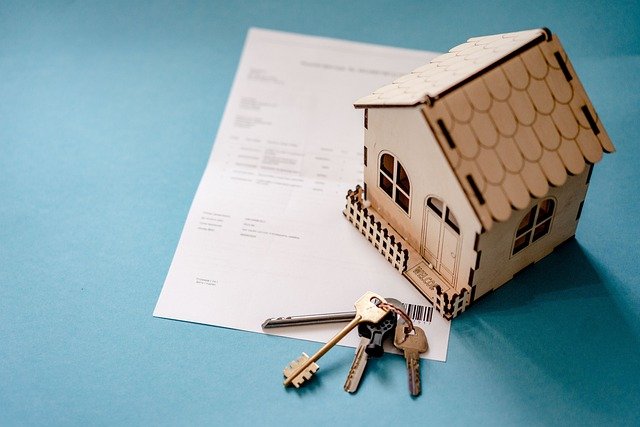Leveraging Zero-Based Budgeting for Personal Financial Success
In a world where financial management has become increasingly complex, individuals are seeking innovative ways to take control of their personal finances. Zero-based budgeting, a concept traditionally used in corporate finance, is now making waves in personal financial planning. This fresh approach to budgeting promises to revolutionize how individuals allocate their resources and achieve their financial goals.

Origins and Evolution of Zero-Based Budgeting
Zero-based budgeting (ZBB) was first introduced in the 1970s by Peter A. Pyhrr, a management accountant at Texas Instruments. Initially developed as a corporate budgeting technique, ZBB aimed to increase organizational efficiency by requiring each department to justify its budget from scratch every fiscal year.
Over time, financial experts recognized the potential of applying this concept to personal finance. The core principle remains the same: start from zero and justify every expense. This approach forces individuals to critically evaluate their spending habits and prioritize their financial goals.
How Zero-Based Budgeting Works for Personal Finance
In personal zero-based budgeting, individuals start each month with a “blank slate.” Every dollar of income is assigned a specific purpose, whether it’s for essential expenses, savings, investments, or discretionary spending. This method ensures that income minus expenses equals zero, with every dollar accounted for.
The process typically involves several steps:
-
Determine total monthly income
-
List all expected expenses, including fixed costs and variable spending
-
Assign a purpose to every dollar of income
-
Track spending throughout the month
-
Adjust allocations as needed
-
Review and refine the budget regularly
This approach differs from traditional budgeting methods, which often involve setting spending limits based on historical data or rough estimates.
Benefits of Zero-Based Budgeting for Personal Finance
Implementing zero-based budgeting in personal finance offers several advantages:
-
Increased awareness: By justifying every expense, individuals become more conscious of their spending habits.
-
Better alignment with financial goals: ZBB encourages individuals to prioritize spending based on their current financial objectives.
-
Flexibility: The method allows for easy adjustments as financial situations or goals change.
-
Reduced unnecessary spending: By questioning every expense, individuals are more likely to eliminate or reduce non-essential costs.
-
Improved savings: With a clearer picture of where money is going, individuals can often identify opportunities to increase savings.
Challenges and Considerations
While zero-based budgeting can be highly effective, it’s not without its challenges:
-
Time-consuming: Setting up and maintaining a zero-based budget requires significant time and effort, especially in the beginning.
-
Detailed tracking: The method requires meticulous expense tracking, which can be overwhelming for some individuals.
-
Unpredictable expenses: Dealing with unexpected costs can be challenging within the rigid structure of ZBB.
-
Psychological factors: Some individuals may find it difficult to justify every expense, leading to potential stress or anxiety.
-
Learning curve: It takes time to become proficient in zero-based budgeting, and mistakes are common in the early stages.
Implementing Zero-Based Budgeting: Best Practices
To successfully implement zero-based budgeting in personal finance:
-
Start with a clear understanding of financial goals
-
Use budgeting tools or apps to simplify the process
-
Be realistic about expenses and income
-
Review and adjust the budget regularly
-
Involve all household members in the budgeting process
-
Maintain an emergency fund for unexpected expenses
-
Be patient and allow time for the new system to work
Technology and Zero-Based Budgeting
Advancements in financial technology have made zero-based budgeting more accessible to individuals. Numerous apps and software programs now offer features specifically designed for this budgeting method. These tools can automate expense tracking, categorize spending, and provide real-time updates on budget allocations.
Some popular apps for zero-based budgeting include YNAB (You Need A Budget), EveryDollar, and Goodbudget. These platforms often integrate with bank accounts and credit cards, streamlining the budgeting process and making it easier to stick to the zero-based approach.
Zero-Based Budgeting vs. Traditional Budgeting Methods
While traditional budgeting methods like the 50/30/20 rule (50% needs, 30% wants, 20% savings) provide a simple framework, zero-based budgeting offers a more detailed and customized approach. Traditional methods often rely on rough percentages and may not account for individual financial situations or goals.
Zero-based budgeting, on the other hand, encourages a more active and intentional approach to financial management. It allows for greater flexibility and precision in allocating resources, potentially leading to better financial outcomes.
Case Studies: Success Stories with Zero-Based Budgeting
Many individuals have reported significant improvements in their financial situations after adopting zero-based budgeting. For example, a young professional couple was able to pay off $50,000 in student loan debt in just two years by implementing ZBB. They found that the method helped them identify and eliminate unnecessary expenses, allowing them to allocate more money towards debt repayment.
Another case involved a retiree who used zero-based budgeting to stretch her fixed income. By carefully justifying each expense, she was able to maintain her desired lifestyle while also setting aside funds for unexpected medical costs.
These success stories highlight the potential of zero-based budgeting to transform personal finances when applied consistently and diligently.
Key Strategies for Successful Zero-Based Budgeting
-
Prioritize expenses based on personal values and long-term financial goals
-
Regularly review and adjust budget categories
-
Use cash envelopes for discretionary spending to stay within budget
-
Set realistic expectations and allow for some flexibility
-
Celebrate small wins to stay motivated
-
Educate yourself on personal finance to make informed budgeting decisions
-
Consider working with a financial advisor to optimize your zero-based budget
In conclusion, zero-based budgeting offers a powerful tool for individuals looking to take control of their finances. By requiring justification for every dollar spent, this method promotes mindful spending and helps align financial decisions with personal goals. While it may require more effort than traditional budgeting approaches, the potential benefits in terms of savings, debt reduction, and financial clarity make it a compelling option for many. As with any financial strategy, success with zero-based budgeting depends on consistent application and a willingness to adapt as circumstances change. For those ready to take a more active role in their financial management, zero-based budgeting could be the key to unlocking greater financial success and peace of mind.





